If you contribute, that’s very fine. If you do not want to, no problem, but write it down. That’s the choice left to Burundian citizens.
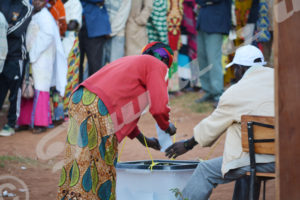
Burundians have the choice to contribute or not to the 2020 elections.
“The contribution is individual and not collective” stated Bujumbura government during the social dialogue with labor unions on Thursday 25 January. Three ministers of the Interior, Public Service and Finance have stressed the “voluntary” nature of the contribution to the 2020 elections. Their joint ordinance of December 11 clarified the methods of collection. They had estimated that the payroll deduction for civil servants would be at source.
They were not expecting trade unions’ resistance. In fact, 35 unions considered that it was out of the question to make any withdrawal from salary without the employees’ consent. They also called for a social dialogue and asked the government to suspend the decision to start the planned withdrawal of money from their salaries in January.
A possible exemption
The dialogue finally took place this Thursday. The three ministers assured that the contribution was not “mandatory”. For this purpose, any civil servant who wishes to not contribute is to only write to the Minister of the Interior with a copy to that of Finance “and ask for an exemption that will be given to him/her, without any form of trial.”
A new deal for some Burundians who did not see how to circumvent the joint ordinance. “This only establishes the collection methods for those who want, to establish some coordination,” insists the Ministry of the Interior.
The government has promised that talks will continue with these trade unionists. They will take place in the Social Dialogue Committee to find a solution to the issue with trade unionists.
>>Reactions
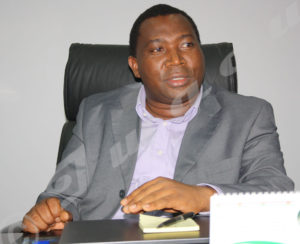 Domitien Ndihokubwayo: “Those who do not want to contribute have to make it known”
Domitien Ndihokubwayo: “Those who do not want to contribute have to make it known”
For the Minister of Finance, contributing to elections is strengthening democracy. This is another way of contributing to the preservation of peace. He announces that those who do not want to contribute just have to let him know.
With regard to the estimated budget of the elections which so far remains unknown, Domitien Ndihokubwayo indicates that he has not yet elaborated the estimated calculations. “When we finish establishing this budget after calculations, rest assured, it will be communicated to the public. He has said the government is looking for other sources of funding. “If partners agree to support us tomorrow, the measure will no longer be in effect.”
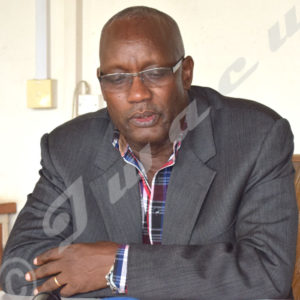 Tharcisse Gahungu: “Concerns about this correspondence to request an exemption”
Tharcisse Gahungu: “Concerns about this correspondence to request an exemption”
According to Tharcisse Gahungu, Chairman of the Confederation of Burundi Trade Unions, there are still some questions. He particularly raises concerns about this letter, which must be sent to ministers to request an exemption. He also believes that the salary of civil servants for this month of January should not suffer from any delay or non-consensual withdrawal. “We will continue the dialogue and end the issue in February.”
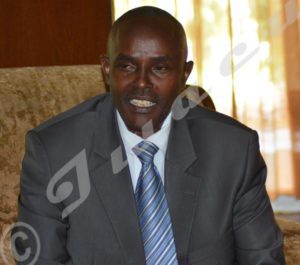 Tatien Sibomana: “Writing a letter to say no to the contribution is an obligation”
Tatien Sibomana: “Writing a letter to say no to the contribution is an obligation”
This political actor says that forcing people to write a letter to say no to the contribution is an indirect way of obliging them. This is, for Tatien Sibomana, an intimidation that those who do not want to contribute will be put on file and may suffer harassment. This withdrawal of money from civil servants’ salaries should stop and everyone should contribute because they feel like doing it. The provision of the Labor Code stipulates that no deduction at source of the worker’s wages can be made without the approval of the latter. “But the Labor Code is hierarchically superior to the joint ordinance,” he said.
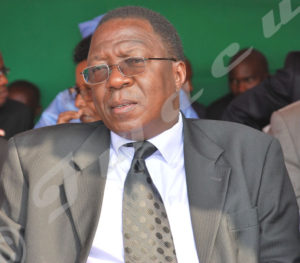 Sylvestre Ntibantunganya: “The management of the employee’s salary is the exclusive responsibility of the employee”
Sylvestre Ntibantunganya: “The management of the employee’s salary is the exclusive responsibility of the employee”
The former President of the Republic indicates that citizens can be called upon to contribute. Nevertheless, for Sylvestre Ntibantunganya, one must question the financial state of the citizens. Since the management of the employee’s salary is the sole responsibility of the employee, the employer cannot touch it without his/her consent.
President Ntibantunganya believes that if the population is called to contribute, the least thing is to define the traceability of the money from the collection, management, the amount expected … “In short, all the clarifications that Burundians need.”
Two contradictory texts
The ‘contribution to the elections of 2020’ series continues. Contradictions on the legal level fuel controversy.
First, the Minister of Public Service released a memo on Thursday, January 18. It was about the implementation of the joint ministerial decree of December 11, laying down the modalities for collecting the contributions of the population for the 2020 elections. In order to implement this ordinance, Minister Félix Mpozeriniga indicated that the contributions to the 2020 elections as provided for in Article 4 of the Ministerial Ordinance are made ‘on base salary’. Good news for civil servants who had estimated that a deduction will eventually be made on their salary.
This was without counting on the joint ordinance of the Ministers of the Interior and Finance that fell on January 25th. It clarifies, if not contradicts, the memo by the Minister of Public Service. Indeed, Pascal Barandagiye and Domitien Ndihokubwayo, both ministers, indicate that the expression ‘salary scale’ contained in the joint ordinance of December 11 does not go in the sense of ‘base salary’ but rather ‘net salary.’ This range will therefore be taken into account when deducting the employee’s salary because, ultimately, it is the new ordinance that will be legally taken into account.
Analysis: “I have the honor to announce that …”
The referendum on the revision of the Constitution is set for the month of May and the process of the 2020 elections is ongoing. When two confederations of 35 workers’ unions ask for a social dialogue, the government has to sit down with them and start discussions.
For the government, any wave of protest must be avoided. A way to keep going forward must be found. The 2015 events are still in the people’s memories. After, it was necessary to counter a putsch. But the pressure remains though indirect.
If some do not want to contribute, that’s fine. They should write a letter to competent authorities to request an exemption.
Some trade unionists say they are apprehensive about this “correspondence”. They already evoke the fear of retaliation against those who will not want to contribute to the elections. “These black sheep who refuse to strengthen the sovereignty and democracy.”
Officially, Bujumbura puts forth patriotism to require contribution from the population. “Because we know that many people are on our side and they will contribute,” said a member of the government. A kind of evaluation of the popularity of the power in place, they say. Patriotism or fear of reprisals? Do Burundians really have the choice not to contribute?
“I have the honor to announce that I do not want to …” How many will have the courage to finish this sentence?
Written by Agnès Ndirubusa and translated by Pierre Emmanuel Ngendakumana


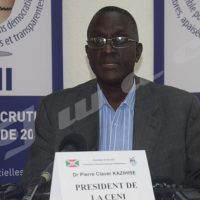
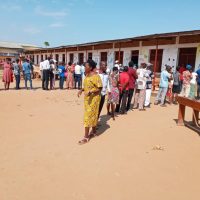
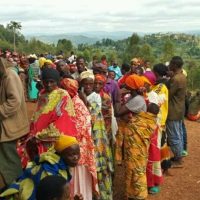
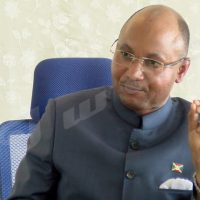













 IWACU Open Data
IWACU Open Data

